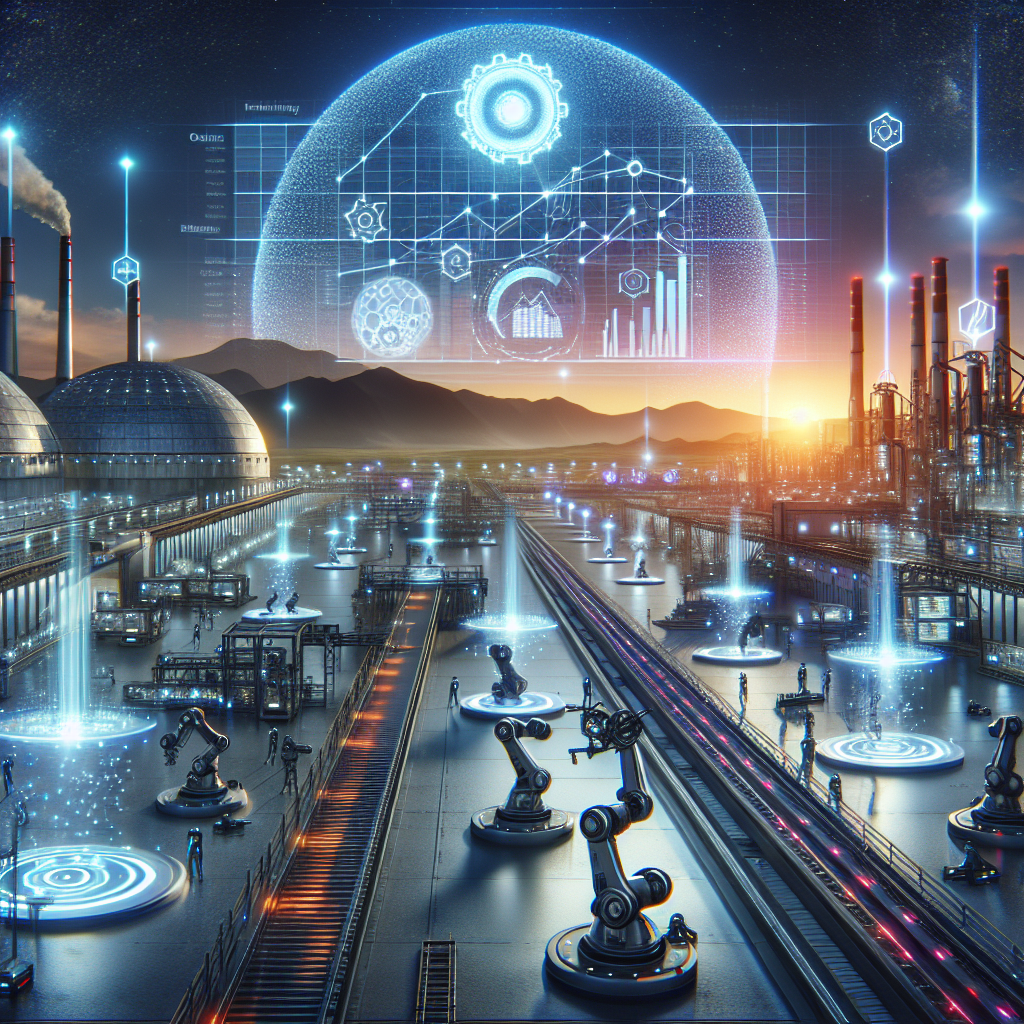In recent years, artificial intelligence (AI) has been revolutionizing various industries, and manufacturing is no exception. AI-driven solutions are transforming traditional manufacturing processes into smart, efficient, and cost-effective operations. From predictive maintenance to quality control, AI is enabling manufacturers to improve productivity, reduce downtime, and increase profitability. In this article, we will explore how AI-driven solutions are ushering in a new era of smart manufacturing and production.
AI in Manufacturing: A Game Changer
AI in manufacturing involves the use of advanced algorithms and machine learning techniques to analyze data, optimize processes, and make informed decisions. By leveraging AI, manufacturers can enhance their operations in several key areas, including:
1. Predictive Maintenance: One of the most significant benefits of AI in manufacturing is predictive maintenance. By analyzing data from sensors and machines, AI algorithms can predict when equipment is likely to fail and proactively schedule maintenance before a breakdown occurs. This not only reduces downtime but also extends the lifespan of machinery, saving manufacturers time and money.
2. Quality Control: AI-powered image recognition systems can inspect products for defects and anomalies in real-time, ensuring that only high-quality items make it to the market. This not only improves product quality but also reduces the need for manual inspection, leading to faster production cycles and lower labor costs.
3. Supply Chain Optimization: AI can analyze vast amounts of data to optimize supply chain processes, such as inventory management, demand forecasting, and logistics. By providing real-time insights and recommendations, AI-driven solutions help manufacturers streamline their operations and reduce inefficiencies in the supply chain.
4. Process Optimization: AI algorithms can analyze production data to identify bottlenecks, optimize workflows, and improve overall efficiency. By continuously monitoring and adjusting processes, manufacturers can maximize output, minimize waste, and remain competitive in a rapidly evolving market.
5. Customization and Personalization: AI enables manufacturers to tailor products to individual customer preferences, leading to greater customer satisfaction and loyalty. By analyzing customer data and feedback, manufacturers can create personalized products and experiences that meet the specific needs of their target audience.
Overall, AI-driven solutions are revolutionizing the manufacturing industry by enabling companies to operate smarter, faster, and more efficiently. By harnessing the power of AI, manufacturers can stay ahead of the competition, adapt to changing market demands, and drive innovation in their respective industries.
FAQs
1. How can AI improve productivity in manufacturing?
AI can improve productivity in manufacturing by optimizing processes, predicting maintenance needs, enhancing quality control, and streamlining supply chain operations. By leveraging AI-driven solutions, manufacturers can increase efficiency, reduce downtime, and maximize output, leading to higher productivity and profitability.
2. What are some examples of AI applications in manufacturing?
Some examples of AI applications in manufacturing include predictive maintenance, quality control, supply chain optimization, process optimization, and customization/personalization. These AI-driven solutions enable manufacturers to enhance their operations, improve product quality, and meet customer demands more effectively.
3. How can manufacturers integrate AI into their existing operations?
Manufacturers can integrate AI into their existing operations by partnering with AI solution providers, investing in AI technology, and training their workforce on AI implementation. By adopting a strategic approach to AI integration, manufacturers can unlock the full potential of AI-driven solutions and transform their operations into smart, efficient, and competitive processes.
4. What are the benefits of AI in manufacturing?
The benefits of AI in manufacturing include improved productivity, reduced downtime, enhanced quality control, optimized supply chain operations, and increased customization/personalization. By leveraging AI, manufacturers can stay ahead of the competition, adapt to market demands, and drive innovation in their respective industries.
In conclusion, AI-driven solutions are ushering in a new era of smart manufacturing and production by revolutionizing traditional processes and enabling companies to operate more efficiently and effectively. By harnessing the power of AI, manufacturers can enhance productivity, improve quality, and drive innovation in their respective industries. As AI continues to evolve and advance, the future of manufacturing looks brighter than ever before.

